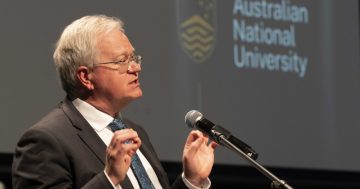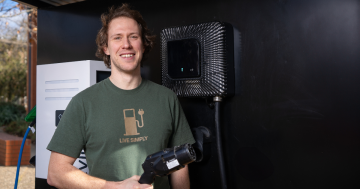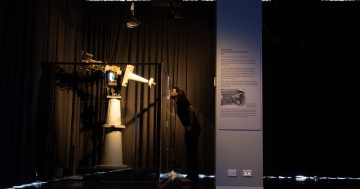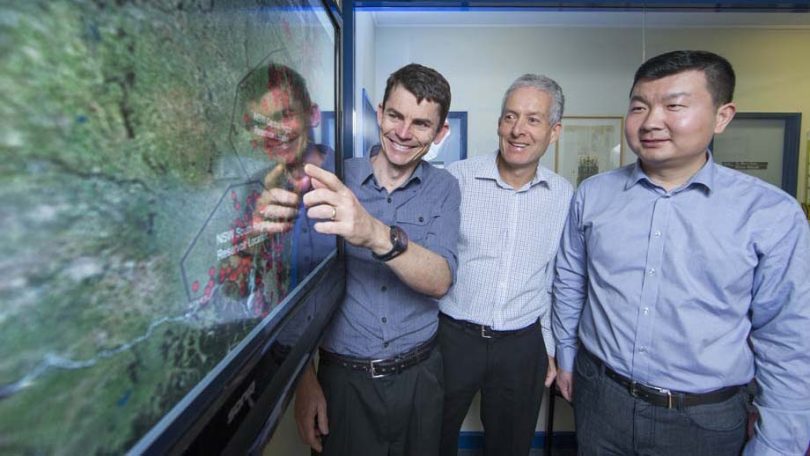
Dr Matt Stocks, Professor Andrew Blakers and PhD candidate Bin Lu from the ANU College of Engineering & Computer Science. Photos: Supplied by ANU.
ANU scientists have claimed two of this year’s Eureka Prizes – Australia’s leading science awards – taking the top gongs for environmental research and outstanding early career researcher.
The Eureka Prize for environmental research went to the ANU’s RE100 group, led by Professor Andrew Blakers, Dr Matthew Stocks and Bin Lu, for their research challenging the barriers for renewable energy in Australia.
The trio’s research shows Australia can transition smoothly to 100 per cent renewable electricity while retaining reliability of supply after the team discovered 22,000 sites that are potentially suitable for cost-effective pumped-hydro energy storage.
Their research shows these sites can be used to help build a secure and cheap Australian electricity grid with 100 per cent renewable energy.
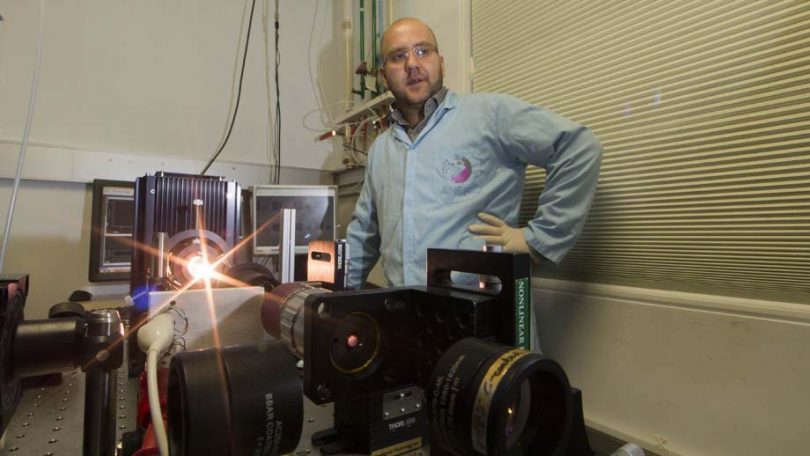
Dr Mohsen Rahmani from the ANU Research School of Physics and Engineering.
Dr Mohsen Rahmani took home the Eureka Prize for outstanding early career researcher after developing a new class of nanoscale surfaces that are 500 times thinner than a human hair.
The newly developed surfaces offer a wide range of potential applications, including new night-vision technology, adjustable mirrors and lenses, and ultra-sensitive biochemical detectors. His nano surfaces have transformed the capabilities of today’s miniature consumer devices, with several organisations showing interest in commercialising his work.
Vice-Chancellor Brian Schmidt congratulated the RE100 group and Dr Rahmani on their success, saying it was a fitting reward for years of hard work.
“This is a well-earned recognition and an example of the extraordinary depth of research that is taking place here at ANU. I would like to acknowledge the hard work and dedication of everyone involved in these projects,” Vice-Chancellor Schmidt said.
“It was particularly encouraging to see so many ANU researchers nominated for this year’s Eureka Prizes across a range of scientific fields.”













